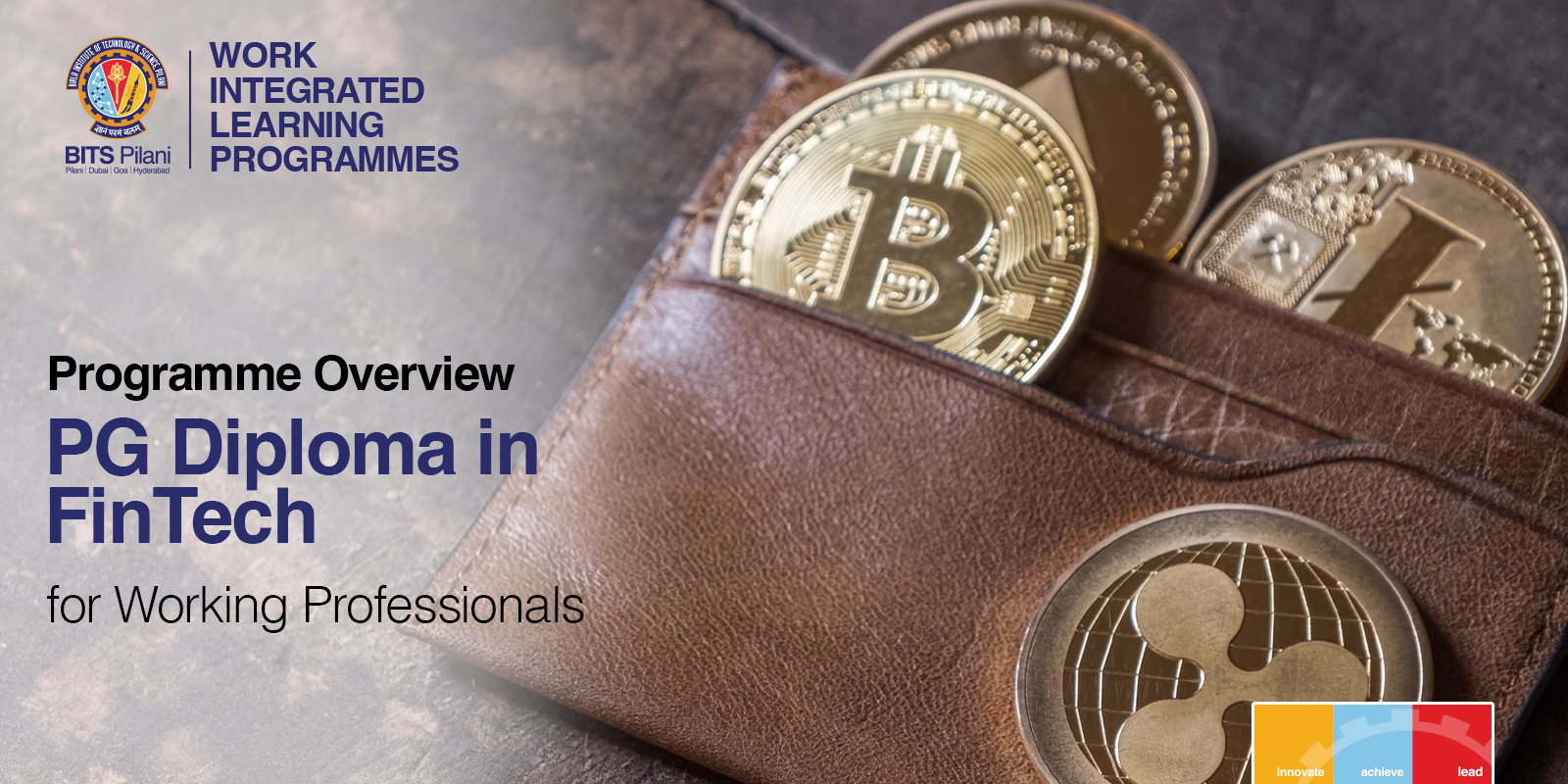Technology Transformation of Modern Finance
The Financial Services industry is currently witnessing a huge transformation driven by innovative technologies such as Blockchain, Artificial Intelligence, Cloud Computing, Internet of Things and Mobile Computing. Over the past decade, many new Fintech firms have disrupted the conventional financial services industry by leveraging these new technologies and offering customised, value-added services in a rapid manner. There is a huge demand for people with the right skill sets and understanding of how these emerging technologies can be applied in the financial services industry.
Programme Highlights
- Industry-relevant curriculum, delivered online or on-site lectures.
- Practitioner-oriented insights from industry experts will help you develop solutions to real world problems using cutting edge analytical techniques.
- The programme uses a Continuous Evaluation System that assesses the learners over convenient and regular intervals. Such a system provides timely and frequent feedback and helps busy working professionals stay on course with the programme.
- The education delivery methodology is a blend of classroom and experiential learning. Experiential learning consists of lab exercises, assignments, case studies and work integrated activities.
- Participants who successfully complete the programme will become members of an elite & global community of BITS Pilani Alumni.
Programme Curriculum
The programme offers a degree of customisation to address the specific L&D needs of your organisations.
- Quantitative Methods
- Financial Management
- Global Financial Markets and Products
- Introduction to FinTech
- Financial Analytics
- Blockchain and Applications
- Elective 1
- Elective 2
- Financial Risk Analytics
- Entrepreneurship in FinTech
- Machine Learning for Finance
- InsurTech
- Deep Learning Application in Finance
- Technology Disruptions in FinTech
- Digital Banking and Beyond
- Algorithmic and High Frequency Trading
- FinTech in Wealth Management
Learning Methodology
LECTURES DELIVERED ONLINE AND ONSITE
Lectures are delivered by BITS Pilani faculty members through live via online classes, or at the organisation's premises, and are designed to offer similar levels of interactivity as regular classrooms at the BITS Pilani campus.
DIGITAL LEARNING
Learners can access engaging learning material at their own pace which includes recorded lectures from BITS Pilani faculty members, course handouts and recorded lab content where applicable.
CONTINUOUS ASSESSMENT
Continuous Assessment includes graded Assignments/ Quizzes, Mid-semester exam, and Comprehensive Exam.
EXPERIENTIAL LEARNING
The programme emphasises on Experiential Learning that allows learners to apply concepts learnt in classroom in simulated, and real work situations.This is achieved through:
- Data analysis/ visualization tools such as Linear Optimization, Descriptive Statistics, Multivariate Analysis & Mining Algorithms using R, Python, Excel and Excel Solver
CASE STUDIES AND ASSIGNMENTS
Carefully chosen real-world cases & assignments are both discussed and used as problem-solving exercises during the programme.
DISSERTATION/ PROJECT WORK
The fourth semester offers an opportunity for learners to apply their knowledge gained during the programme to a real-world like complex project. The learner is expected to demonstrate understanding of vital principles learnt across semesters and their ability to successfully apply these concepts.
Eligibility Criteria
To apply, candidates must possess one of the following qualifications:
- Employed professionals holding BE/ B.Tech./M.Sc./ Integrated First Degree of BITS or its equivalent with at least 60% aggregate marks, and minimum one-year relevant work experience after the completion of the degree
OR - Employed professionals holding a three year undergraduate degree such as B.Sc./ B.Com./ BCA or equivalent with at least 60% aggregate marks, and having studied at least one course in mathematics or statistics at the high school or higher level, and minimum two years of relevant work experience after the completion of the degree


.png)
.png)
.png)
.png)
.png)
.png)
.png)
.png)